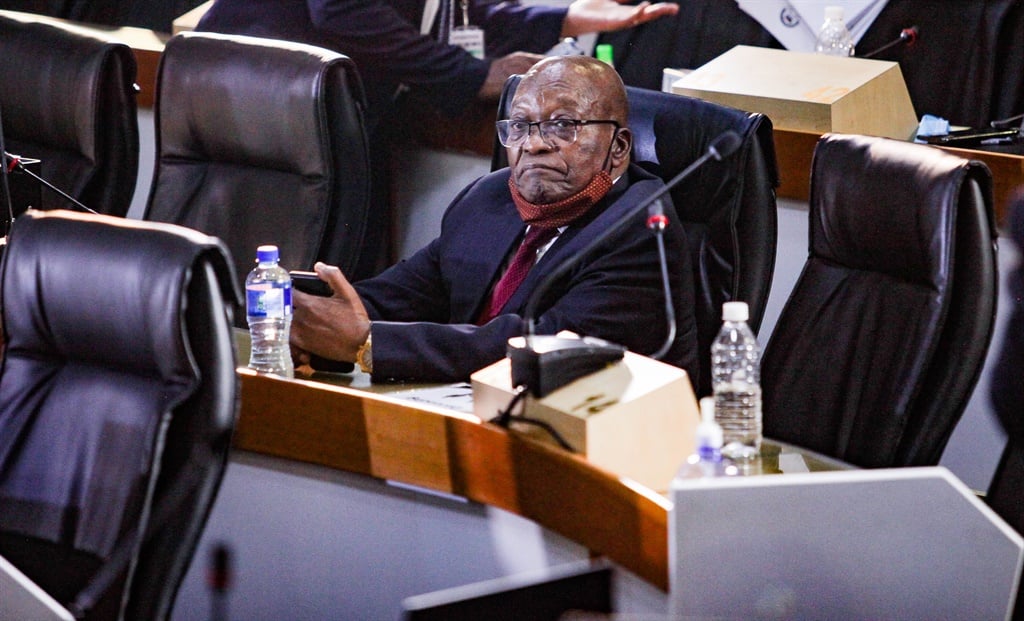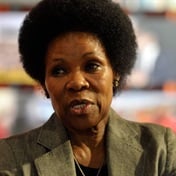
Thembalethu Seyisi writes that the Constitutional Court was critical of the Zondo commission in its judgment, questioning why it didn't deal with the Jacob Zuma matter sooner.
After a trying 2020 on all fronts, those interested in truth and concerned about state capture, fraud and corruption in the public sector stayed glued to their screens as Advocate Ngcukaitobi SC laid bare the reasons to why the Constitutional Court should give him an ear.
The senior counsel appeared on behalf of the Zondo commission of inquiry and asked the court, among other things, to order former President Jacob Zuma to testify on the alleged and seemingly grand corruption that took place during his tenure as head of state.
The urgent application came after painstaking efforts to accommodate the former president.
The commission had previously employed five different strategies to get him to come testify.
The former president is in receipt of 36 rule 3(3) notices which the commission issues when a person is implicated by one of the witnesses.
Moreover, he is in receipt of two regulation 10(6) notices served on persons with documents under his control, which has a bearing on matters being investigated by the commission. Even with these facts as explained in detail by Ngcukaitobi, the Justices had difficulties in understanding why the apex court must entertain the matter on the ground that it has exclusive jurisdiction on matters such as this one.
I too, like Justice Nayole Jafta, am "bothered a lot" by this plea from the Zondo Commission and share similar sentiments to that of Justice Mbuyiseli Madlanga, who went as far as to question whether the matter was an urgent one and whether the commission had wasted time and now is guilty of a classic case of self-created urgency.
Obey all summonses
Despite these concerns as expressed by the Justices during the hearing, in a unanimous judgment on 28 January, the court exercised its discretionary power and granted the Zondo Commission direct access.
The court ordered that former President Jacob Zuma must obey all summonses and directives lawfully issued by the commission. Zuma was directed to appear and give evidence before the inquiry on dates determined by it and does not have a right to remain silent in proceedings before the commission. It further declared that the former president is entitled to all privileges under Section 3(4) of the Commissions Act, including the privilege against self-incrimination and he is to pay the commission's costs in this case, including costs of two counsel.
In this short judgment, the Constitutional Court does not hold back in expressing its discomfort as to why the Zondo commission did not invoke its coercive powers timeously.
The court singled out "red lights". One of these times was when Zuma appeared before the commission in July 2019 and refused to answer questions that he said made him uncomfortable. He effectively withdrew his participation thereafter. This, according to the court should have signalled to the Zondo commission that the use of its coercive powers may be necessary.
READ | Karyn Maughan: Zuma must admit implication in certain crimes to avoid answering inquiry questions
In the same breath, the court emphasised the seriousness of the allegations investigated by the commission, going as far to state that these would constitute a massive threat to our democracy if established.
However "maladroit" (clumsy) the conduct of the Zondo commission was in failing to see the red lights, the court states, "It is apparent… that a dismissal of the application for direct access would prejudice the public interest in the commission’s investigations. The respondent [Zuma] is firmly placed at the centre of those investigations which include an allegation that he had surrendered constitutional powers to unelected private individuals. If those allegations are true, his conduct would constitute a subversion of this country’s constitutional order", and that "the public, whose interest would be frustrated if direct access is refused, is not responsible for the blunders of the commission’s lawyers. As a result, the lack of diligence on the lawyers’ part cannot be attributed to the public".
The Constitutional Court found it unnecessary to determine whether the matter was within its exclusive jurisdiction.
Practical effect of judgment
This outcome from the Constitutional Court has significant practical effects.
The former president’s appearance at the commission will mean the public will finally know, without doubt, whether Zuma was derelict of his constitutional duties in avoiding conflict of interest and acting in the best interest of South Africa or if he rather advanced his interests and indeed that of his friends/family.
The public will also find out whether former Public Protector Thuli Madonsela and her team were correct in their State of Capture report in so far as the former president is implicated therein. The alleged state capture, fraud and corruption does have victims. It is not a philosophical debate or a scientific discovery that corruption undermines the government's commitment to a socially just society where the advancement of human rights tops the national agenda.
If the former president does not employ further delaying tactics, South Africans will taste the truth of what happened during the so-called "nine wasted years". Hopefully whatever is revealed during Zuma's testimony at the commission, will catalyse a shift where citizens will realise they should vote for those who put their interests first to ensure our democracy thrives.
- Thembalethu Seyisi is an author, a social justice ambassador and a final year law student at Stellenbosch University.
*Want to respond to the columnist? Send your letter or article to opinions@news24.com with your name and town or province. You are welcome to also send a profile picture. We encourage a diversity of voices and views in our readers' submissions and reserve the right not to publish any and all submissions received.
Disclaimer: News24 encourages freedom of speech and the expression of diverse views. The views of columnists published on News24 are therefore their own and do not necessarily represent the views of News24.




 Publications
Publications
 Partners
Partners























